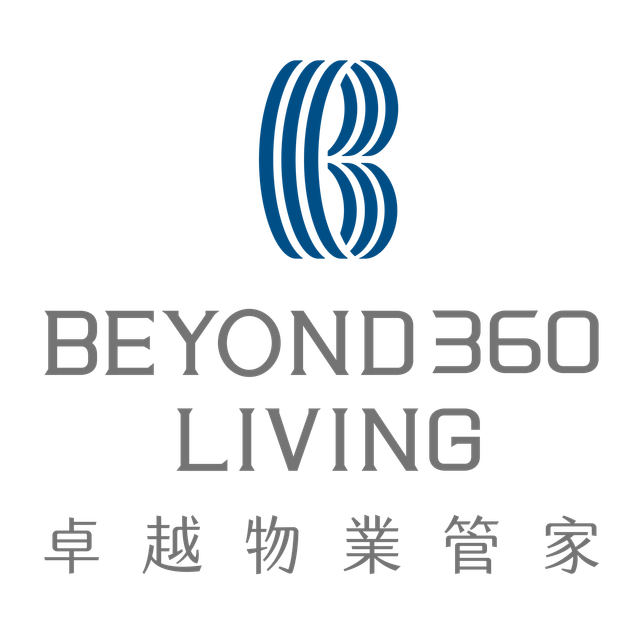Property Management News, Knowledge, Current Affairs, and Videos
Complete Guide to Thailand's Land and Property Tax System – Find Out How Much Tax You Need to Pay for Your Thai Property!
Business Information, Thailand / Author:" BEYOND360 PROPERTY
When purchasing real estate, whether for investment or personal use, it is essential to carefully calculate the related tax burdens. If the real estate taxes are too high, they may erode investment profits. If you are investing in Thai real estate through rental, you need to consider the tax burdens related to rental income. Now, let's take a look at Thailand's real estate tax system! There are many details to consider before buying an apartment:
The paragraph translates to: "An open and transparent tax system, with no property holding tax."
In addition to having excellent appreciation potential and rental yield, another major factor attracting foreign investors to purchase real estate in Thailand is the fixed property tax system and the absence of other intangible costs. Unlike other neighboring countries, Thailand does not impose an annual holding tax (such as the property tax and land value tax in Taiwan) and only requires tax payments at the time of buying and selling transactions.
Generally speaking, what are the tax laws related to real estate in Thailand?
Thailand Capital Gains Tax
Thailand does not have specific capital gains tax legislation. In practice, capital gains tax is treated according to the general provisions of income tax law, which views capital gains tax as a form of taxable income that falls under personal income tax and corporate income tax. The amount of taxable income from capital gains tax on real estate sales (or other assets or investments) is simply the midpoint between the selling price and the original purchase price. Generally, in cases of inflation (except for shared investments on the Stock Exchange of Thailand), there are no subsidies. The sales revenue for capital gains tax (income tax) is based on the actual amount earned, regardless of market prices.
For non-resident taxpayers, capital gains tax income obtained in Thailand is subject to a 15% tax. Foreign non-resident individuals intending to sell property in Thailand should note that under double taxation agreements, they may qualify for a 15% tax exemption.
Exempt Amount for Capital Gains Tax on Other Assets.
When residents and non-resident property owners sell property in Thailand and then use the proceeds to purchase another property as their primary residence, the Thai government grants tax exemption on this transaction. However, certain conditions must be met to legally qualify for the tax exemption. First, the seller must have previously lived in the property being sold and must have considered it their primary residence. Secondly, the property owner must have registered their current residence for at least one year after purchasing the new property.
Second: The seller must purchase a new property within one year, whether before or after the sale, and the newly acquired property must be used as a residence.
The tax amount is calculated based on the appraisal value of the property at the time of sale, so this amount may be higher or lower than the actual sale price, and it must not exceed the value of the new property.
BTS Light Rail Station On Nut.
The On Nut Light Rail Station is closer to the suburbs compared to the central Sukhumvit line, making the area around the subway station particularly advantageous. The entire area is still under development and is one of the most anticipated investment zones among Bangkok's various potential locations. Compared to the city center, the On Nut area offers a slower and more relaxed pace of life, allowing residents to temporarily escape the fast-paced urban environment. The convenience of living here is evident, as a 10-minute light rail ride can take you to the bustling Ekkamai/Thonglo area and connect you to major highways closely linked to the city center. In addition to the slow-paced and self-sufficient community atmosphere, On Nut offers more affordable apartment options, with property prices expected to continue rising in the coming years.
Property and Land Tax
Property or land taxes are collected annually by the government where the property is located. Individual homeowners are taxed when renting out their property at a rate of 12.5% of the annual rent specified in the rental contract or based on the local government's annual assessment, whichever is higher. Properties occupied by homeowners are exempt from property and land taxes. However, if the property is rented out or used for commercial purposes, the homeowner is also responsible for informing the local government and then paying the rental tax by the end of February each year.
Overall, in Thailand, the tax burden is borne by the lessee as per the rental contract.
Costs and Taxes Associated with Selling Real Estate.
The Thai government charges a fixed percentage transaction fee for real estate transactions, amounting to 2% of the total transaction value. In most cases, this fee is shared equally by both parties in the transaction (each paying 1%). Both parties are obligated to pay this fee, but depending on the terms of the contract, the details of the payment amounts can be negotiated between the two sides. If the real estate transaction occurs after holding the property for five years or more, there will be an additional 0.5% stamp duty when selling the property.
The business tax generated from selling real estate is 3.3%, calculated based on either the registered real value or the higher market valuation. This tax includes a special business tax of 3% and a local tax of 0.3%. This tax applies whenever a property is sold for profit as an investment. It's important to note that this tax system is only applicable to transactions made within five years after acquiring property rights. If the property is inherited, then no business tax needs to be paid regardless of how many years it has been held before the transaction.
The withholding income tax is calculated by considering the sale amount or the government-assessed value (whichever is higher) as total income, then subtracting the expenses listed in Schedule B (see attached image) to arrive at the net profit. The taxpayer divides the net profit by the number of years held to determine the annual net income, and then calculates the income tax due based on the income brackets in Schedule A. The final step is to multiply the calculated annual income tax by the total number of years held to find the total withholding income tax amount.
The Original Taxation Standards for New Housing and Land Tax System Are
- If registered as owner-occupied: the tax rate is a maximum of 0.3%; if registered for commercial use: the tax rate is a maximum of 1.2%.
- In order to help everyone gradually adapt to paying property taxes, the Thai government has set the period from 2020 to 2022 (expected) as a transition period. This means that in the first two years, people will not need to pay the full tax amount. The standards are as follows:
- Full exemption: If your property is your first property in Thailand and is valued at less than 10 million Thai baht.
- Owner-occupied tax: If the property is a second home or valued at over 10 million Thai baht, the property tax rate will vary according to the estimated value of the property, as shown in the table below:

- Commercial tax amount: If your property is registered as commercial, the property tax rate will be collected as follows, as per the table:

Typically, overseas property buyers have property valuations falling within the range of 0 to 50 million Thai Baht. At this point, if the property is classified as “commercial” but your actual usage is for “residential,” the tax rate could differ by as much as 15 times. We have also encountered clients who discovered incorrect classifications on their tax bills.
2020-2022 Tax Rate Reduced by 90% due to the Pandemic:
If you do not meet the criteria for exemption from property tax, this year the Thai Cabinet has decided to help everyone get through this difficult time by granting a 90% reduction on all property taxes.
If you own a residential property in Thailand worth 10 million Thai Baht, the tax you would originally owe this year would be 10 million Baht x 0.02% (the temporary tax rate) = 2,000 Baht. This year, you can receive an additional 90% reduction.
This means 2,000 Baht x 10% = 200 Baht. If your property is classified as commercial, the tax rate is 0.3%, meaning the tax would be 30,000 Baht, and after a 90% reduction, you would still have to pay 1,500 Baht.
The translation of the paragraph is: "Source of the article:










